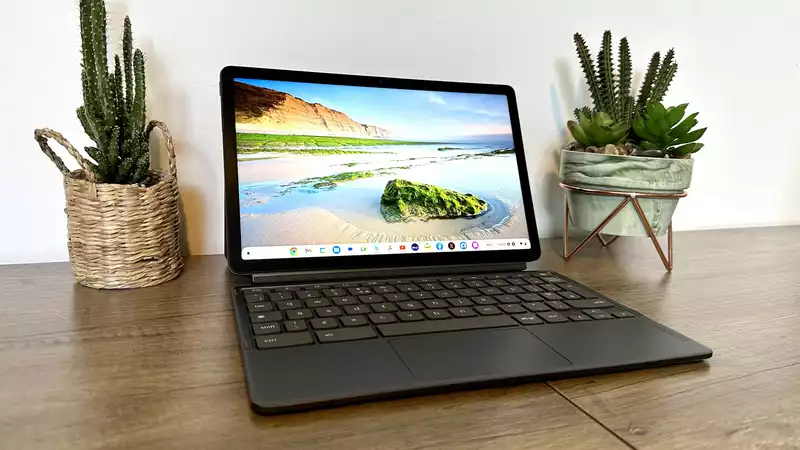Lenovo is entering a new venture that could make the future of Chromebooks as bleak as that of the dodo.
The company, which currently makes some of the very best business laptops on the market, will be launching a new lineup of services powered by a custom Android OS known as the Esper Foundation.
The Foundation is built on Android 11 technology, which supports quarterly security updates for maximum online safety, and wants robust compatibility and customizable branding for peripherals.
The latter seems to focus on the fact that some of these new Esper machines will be designed primarily for the hospitality sector. This was confirmed in an interview with Johanny Payero, Lenovo's Global Advanced Solutions Director of Marketing and Strategy (thanks to TechRadar). Payero told our sister site, "The specific market segments we are targeting include retail and hospitality, and digital signage equipment for these industries."
The first Lenovo device to run on the new Esper Foundation operating system is a PC called the ThinkCentre M70a, with a 12th generation Intel Core i9 CPU, 512GB SSD storage, and 16GB DDR4 RAM .
Desktop PCs such as the ThinkCentre M70q, ThinkCentre M90-1 IoT, and Se30 v2 PC will be available by the end of the year.
Lenovo seems to be betting at least part of its future on these new Android-powered PCs, but what does this mean for the company's future in terms of Chromebook production? Currently, Lenovo is deep into this market, producing some of the best Chromebooks, including the excellent Lenovo Chromebook Duet 3.
In the same interview with TechRadar, Payero said he is keen to see the Esper Foundation and its Android architecture help Lenovo achieve success in a variety of industries. He said, "With our new joint solution with Esper, we can offer the best of Android with the consistency and predictability of Lenovo's x86 devices.
That doesn't necessarily sound good for the company's continued support for traditional Chromebook hardware, which often spans some of the best 2-in-1 laptops you can buy today.
As someone who has never gotten along well with ChromeOS, I would not be wearing funeral paraphernalia if support for this platform began to decline. I recently bought the aforementioned Lenovo IdeaPad Duet 3 for my tech-hating mother, and the setup process was not exactly smooth.
As a hardcore Windows 11 user, I have always found ChromeOS somewhat puzzling as an operating system. So if Lenovo decides to focus more on new Android-based PCs and laptops in the future thanks to the Esper Foundation, I won't shed a tear.










Comments